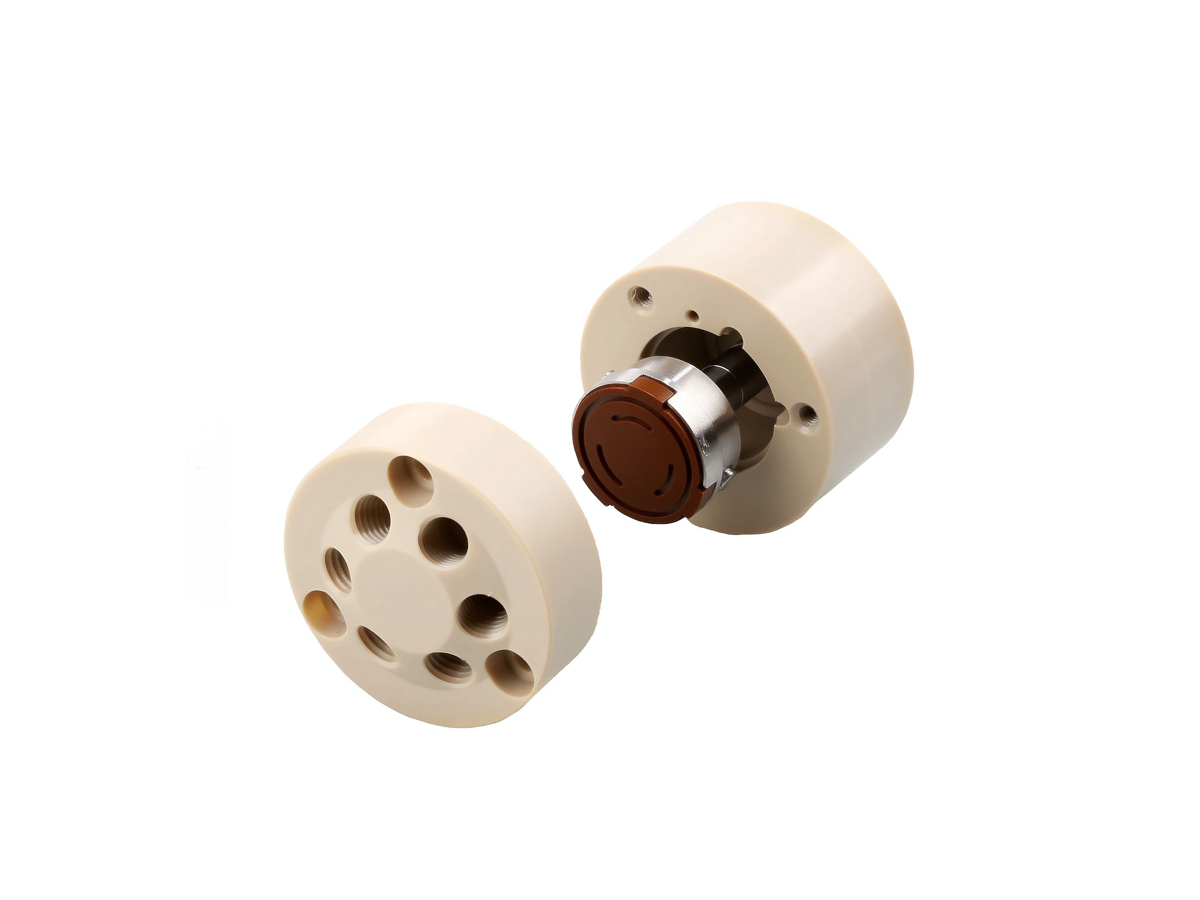Custom Plastic CNC Machined Components for Power Generation Systems
Introduction to Custom Plastic CNC Machined Components
Power generation systems require components that can withstand extreme conditions while maintaining efficiency and reliability. Custom plastic CNC machining provides a versatile solution for producing durable, high-performance plastic parts for use in these systems. Plastics, such as ABS, PTFE, and PEEK, are increasingly utilized for their excellent insulating properties, corrosion resistance, and ability to perform in high-stress environments.
CNC machining of plastic enables the production of precision components for power generation systems, including insulators, seals, gaskets, and flow control parts. These components offer the durability and performance required to support critical operations while reducing weight and enhancing energy efficiency in power plants.
Material Performance Comparison for Plastic Parts
Material | Tensile Strength (MPa) | Thermal Conductivity (W/m·K) | Machinability | Corrosion Resistance | Typical Applications | Advantages |
|---|---|---|---|---|---|---|
40-50 | 0.25 | Excellent | Good chemical resistance | Gaskets, housings | Lightweight, cost-effective, good impact resistance | |
20-25 | 0.25 | Excellent | Excellent chemical resistance | Seals, insulators | Low friction, superior chemical resistance | |
90-100 | 0.25 | Good | Excellent heat and chemical resistance | Pump components, valves | High strength, exceptional thermal stability | |
80-85 | 0.25 | Excellent | Good wear resistance | Bearings, gears | Excellent wear resistance, good strength-to-weight ratio |
Material Selection Strategy
ABS (Acrylonitrile Butadiene Styrene) offers a tensile strength of 40-50 MPa and is well-suited for cost-effective components such as housings and gaskets. It provides good impact resistance and is easy to machine, making it ideal for non-critical parts in power generation systems that require lightweight materials.
PTFE (Teflon), with excellent chemical resistance, is the material of choice for seals and insulators in power generation systems. Its tensile strength of 20-25 MPa can withstand harsh chemicals and extreme temperatures while offering low friction properties.
PEEK (Polyether Ether Ketone) is a high-performance plastic with a 90-100 MPa tensile strength and outstanding heat and chemical resistance. It is perfect for producing critical components, such as pump parts and valves, that must perform under extreme conditions and high temperatures in power generation systems.
Nylon (PA – Polyamide) is widely used for power generation components like bearings and gears due to its good tensile strength (80-85 MPa) and excellent wear resistance. It offers a high strength-to-weight ratio and is known for its durability and performance in demanding applications.
CNC Machining Processes for Plastic Parts
CNC Machining Process | Dimensional Accuracy (mm) | Surface Roughness (Ra μm) | Typical Applications | Key Advantages |
|---|---|---|---|---|
±0.005 | 0.2-0.8 | Custom housings, insulators | Fine surface finishes, tight tolerances | |
±0.005-0.01 | 0.4-1.2 | Cylindrical components, seals | Excellent rotational accuracy | |
±0.01-0.02 | 0.8-1.6 | Mounting holes, connectors | Accurate hole placement | |
±0.002-0.005 | 0.1-0.4 | Surface-sensitive parts | Superior surface smoothness |
CNC Process Selection Strategy
Precision CNC Milling is ideal for creating high-precision plastic parts like custom housings, insulators, and gaskets for power generation systems. This process ensures tight tolerances (±0.005 mm) and fine surface finishes (Ra ≤0.8 µm), which are essential for critical components in high-performance applications.
CNC Turning produces cylindrical components such as seals and valves with excellent rotational accuracy (±0.005 mm). It ensures smooth, uniform parts that are crucial for reliable performance in power generation systems.
CNC Drilling guarantees precise hole placement (±0.01 mm), which is vital for components like mounting holes and connectors used to assemble power generation equipment.
CNC Grinding is used for parts that require extremely fine surface finishes (Ra ≤ 0.4 µm), ensuring that sealing components and other parts have a smooth, high-quality surface, crucial for long-term functionality.
Surface Treatment for Plastic Parts
Treatment Method | Surface Roughness (Ra μm) | Corrosion Resistance | Hardness (HV) | Applications |
|---|---|---|---|---|
0.4-1.0 | Excellent (>800 hrs ASTM B117) | 400-600 | Plastic housings, insulators | |
0.1-0.4 | Superior (>1000 hrs ASTM B117) | N/A | Plastic seals, pump components | |
0.2-0.6 | Superior (>1000 hrs ASTM B117) | 800-1000 | Plastic components, valve bodies | |
0.2-0.8 | Excellent (>1000 hrs ASTM B117) | N/A | Sealing components, high-temperature seals |
Typical Prototyping Methods
CNC Machining Prototyping: High-precision prototypes (±0.005 mm) for functional testing of plastic components used in power generation systems.
Rapid Molding Prototyping: Fast and accurate prototyping for plastic parts like seals, gaskets, and housings.
3D Printing Prototyping: Quick-turnaround prototyping (±0.1 mm accuracy) for initial design validation of plastic components.
Quality Inspection Procedures
CMM Inspection (ISO 10360-2): Dimensional verification of plastic parts with tight tolerances.
Surface Roughness Test (ISO 4287): Ensures the surface quality for precision components in power generation systems.
Salt Spray Test (ASTM B117): Verifies corrosion resistance performance of plastic parts in harsh environments.
Visual Inspection (ISO 2859-1, AQL 1.0): Confirms aesthetic and functional quality of plastic components.
ISO 9001:2015 Documentation: Ensures traceability, consistency, and compliance with industry standards.
Industry Applications
Power Generation: Plastic seals, gaskets, housings, and insulators.
Automotive: Engine components, electrical connectors, cooling parts.
Medical Device: Surgical tools, implants, diagnostic devices.
FAQs:
Why are plastics used in power generation systems?
How does CNC machining improve the precision of plastic parts?
Which plastic materials are most suitable for power generation applications?
What surface treatments enhance the durability of plastic parts in harsh environments?
What prototyping methods are best for plastic components used in power generation?

